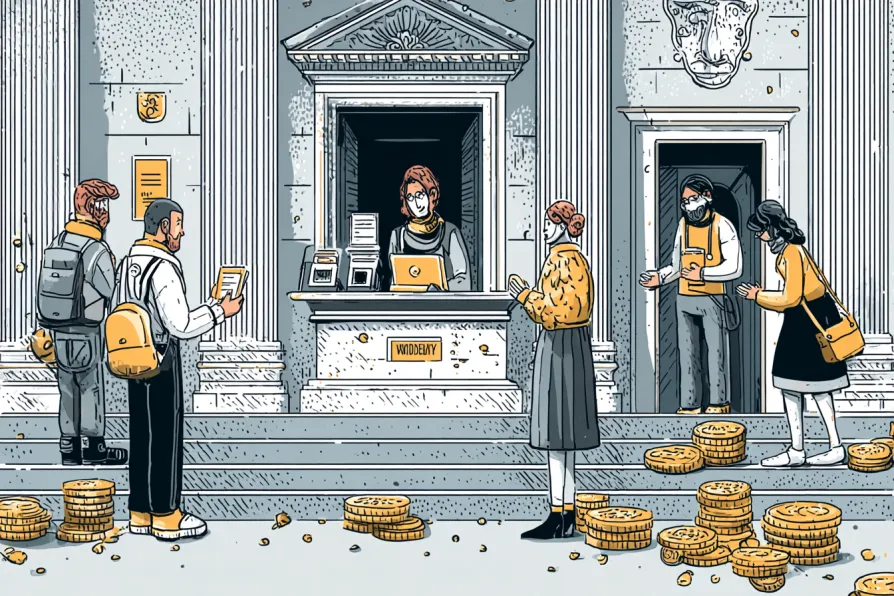South Korea Pauses CBDC Project as Banks Pivot to Stablecoins



South Korea's central bank has temporarily paused its wholesale central bank digital currency (CBDC) and tokenized deposit project following pushback from participating commercial banks, according to multiple Korean press reports on Monday.
The Bank of Korea's Project Han River, which involved seven major banks in digital currency trials, has been put on hold as the same institutions pivot toward launching their own stablecoin consortium.
The pause comes after the completion of the first phase of tokenized deposit trials, which concluded on June 30 and involved experiments with 100,000 participants using tokenized deposits for consumers and wholesale CBDC for bank settlements. The project was scheduled to advance to a second phase later this year, but discussions about the next round of tests have been temporarily suspended.
Commercial banks were reportedly informed of the delay on June 26, though the Bank of Korea has not made a formal public announcement. The seven participating institutions—KB Kookmin, Shinhan, Hana, Woori, NH NongHyup, Industrial Bank of Korea, and one additional bank—had collectively spent approximately 35 billion won ($26 million) on the initial testing phase.
Dual Pressures Drive Suspension
The project faces pressure from two directions: financial constraints and regulatory uncertainty. Banks have expressed concerns about the high costs of participation with unclear commercialization prospects. Central bank Governor Rhee Chang-yong personally visited the CEOs of each participating bank last month, offering to cover some costs for phase two, but financial considerations represent only part of the challenge.
A senior commercial bank official told Yonhap news that the Bank of Korea's explanation centers on legislative uncertainty: "Since the legislation of stablecoins is currently in progress while it is not clear how CBDC, stablecoins, and deposit tokens differ and can coexist, they will wait and see how the situation develops."
The central bank is also grappling with technical questions, including whether to allow tokenized deposits on public blockchains. Discussion of the project may resume in the first half of 2026, according to reports.
Banks Embrace Stablecoin Alternative
With the Korean government moving to enable broader stablecoin issuance, the same banks struggling with CBDC costs are now planning their own stablecoin consortium. This shift suggests financial institutions view private digital currencies as a more commercially viable path forward than government-backed alternatives.
The banking consortium represents one of two major stablecoin initiatives emerging in Korea. Large crypto investor Hashed is simultaneously creating a separate consortium involving crypto exchanges and securities firms, similar to the Paxos Global Dollar initiative but denominated in Korean won.
Global Implications for Digital Currency Competition
Korea's experience may signal broader trends in digital currency development worldwide. European banks have voiced similar concerns about the high costs associated with a digital euro retail CBDC, with some also exploring stablecoin alternatives. The contrast highlights how private stablecoins are gaining momentum while central banks wrestle with complex technical, coordination, and regulatory challenges.
The timing coincides with peak interest in stablecoins globally, including reports of major corporations like Amazon and Walmart considering their own digital currency initiatives. This development comes as Bank for International Settlements, led by a committee chaired by Governor Rhee Chang-yong, appeared to harden its stance toward stablecoins last week, characterizing them as "unsound money."
The Korean experience suggests that CBDCs and stablecoins may not simply coexist but actively compete, with private alternatives potentially holding first-mover advantages and lower implementation costs. This dynamic could reshape how countries approach digital currency strategies, particularly as regulatory frameworks for both CBDCs and stablecoins continue to evolve.

Bitcoin Bets Surge After Mortgage Qualifier Directive
Trump administration's groundbreaking policy shift could transform home financing for cryptocurrency...

Trade Talks, US Jobs Data & Record High Stocks in Focus
Your weekly macro cheat sheet...

Circle Applies for US Trust Bank License Following $18 Billion IPO
Stablecoin giant seeks to self-custody reserves and expand institutional services...

